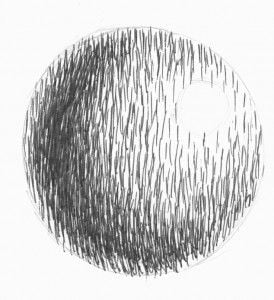I’m not a hockey fan, so don’t know anything about the players or even team names. But i just saw i trending. Maybe these 2 teams are rivals, but im wondering why the refs are allowing them to fight. Unlike the NBA, refs always get into the middle to stop any punches but NHL is different. Its not cool for kids to watch, but I’m entertained LOL



Not a hockey fan either, but I’ve often asked this question of my friends that are. They all same the same thing: The fans enjoy and expect it. To me, it’s dumb. One team ends up a player (or two) down, and that’s when a lot fo the scoring happens. Ergo, you fight and you are more likely to lose. Pretty much any other sport in the world and you’re off the field of play, and often for a long period of time.
FWIW, this is also why I’m not a hockey fan…
You seem to misunderstand how the penalties work out. 95% of the time after a fight happens, both teams get offsetting penalties, and so neither team is at a disadvantage because of the fight alone. There are instances where one team ends up with more penalties after a fight, but it’s usually because of something that happened before the fight and prompted the fight (and should’ve been a penalty anyway)
They added the instigator penalty to cut down fights as well. The player deemed responsible for startibg the fight gets an extra penalty, and that does indeed give the other team an advantage.
Instigator penalties aren’t given out every time people fight, they are only given in cases where one dude goes waaaaaaaay out his way to start a fight. The rest of the time the fighting penalties are even which doesn’t result in a power play for either team.
As the other user commented, instigator is hardly ever actually used.
NHL reffing is… not great most of the time. Despite being a fan of the sport, I would like to see changes that would reduce the future rates of TBI among players. Refs actually enforcing the rules would probably help a bit there.
I think you have a misconception about the rules. Hopefully if I clear this up, you may give hockey another shot.
True. In hockey this is called a power play. It’s a well known fact about hockey that most of the scoring in a game happens during the power play. Power plays are a common occurrence in every game as a result of standard penalties (ie not fighting) such as high sticking (hitting a player above the shoulders with your stick), hooking (using your stick to ‘hook’ a player to try and slow them down), slashing (using your stick to whack someone, usually across the hands), etc.
False. When players fight, they are given equal concurrent penalties. Both of their teams remain at even strength and there is no power play.
True, but then you get that fantastic four on four play which is wildly more hectic and entertaining.
All good points. Just a minor thing, but when you say “you fight, you’re more likely to lose,” I’m not sure if this is true, because for a team to lose, another team has to win. So you could very well aay “you fight, you’re more likely to win.”
Now, you could make a case of a team that could easily and overwhelmingly beat the second team, and if they fight, they’re more likely to lose players, and thereby, they’re more likely to lose. Because if they fight, the other team could lose players, so if they fight… they would win anyway, so the likelihood of winning doesn’t increase.